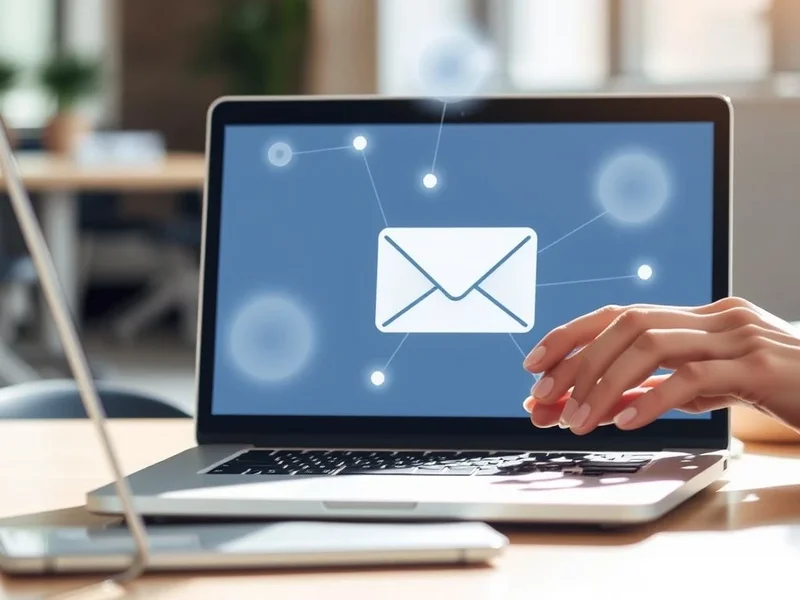How to Write a Former Client Re-engagement Email
Reconnecting with past clients can be a powerful strategy for business growth. A well-crafted Former Client Re-engagement Email is key to rekindling those valuable relationships and exploring new opportunities. This guide will help English learners master the art of writing such emails with a professional tone, ensuring effective communication and encouraging past clients to re-engage with your services or products.

Table of Contents
Structure of a Former Client Re-engagement Email
Writing an effective Former Client Re-engagement Email requires a clear, concise structure. Each part plays a crucial role in delivering your message and encouraging a positive response.
1. The Subject Line
The subject line is your first impression. It needs to be clear, concise, and compelling enough to encourage the recipient to open the email. It should hint at the email's purpose without being too salesy.
Formula:[Friendly Reconnect / Quick Update] from [Your Name/Company] - [Optional: Value Proposition]
2. The Salutation
Choose your greeting based on your previous relationship with the client. Generally, a professional yet friendly approach is best for re-engagement.
- Formal: "Dear [Client's Last Name]" (Use if your previous interactions were very formal or if you're unsure.)
- Informal: "Hi [Client's First Name]" or "Hello [Client's First Name]" (Use if you had a more casual, friendly relationship.)
3. The Body
The body of your email is where you convey your message, re-establish connection, and present your value.
- Opening: Start by reminding them of your past connection and briefly state the purpose of your email. Reference a specific project or interaction if possible to jog their memory.
- Key Details: Briefly explain what's new or what value you can now offer. This isn't a sales pitch; it's an update. Focus on how you can solve their current problems or meet their evolving needs.
- The "Ask" or Main Point: Clearly state what you hope to achieve. This could be scheduling a brief call, sharing an updated portfolio, or simply offering a new resource. Keep it low-pressure.
- Closing Remarks: Express gratitude for their time and consideration. Reiterate your willingness to help or answer any questions they might have.
4. The Closing and Signature
Maintain a professional and polite tone right through to your closing.
- Appropriate Closing Phrases:
- "Best regards,"
- "Sincerely,"
- "Kind regards,"
- "Looking forward to reconnecting,"
- Signature:
- Your Full Name
- Your Title
- Your Company
- Your Contact Information (Phone, Email, Website)
More: How to Write a Price Increase Notification Email
Essential Vocabulary
Here's a table of useful vocabulary and phrases for drafting your re-engagement emails:
| Vocabulary | Meaning | Example |
|---|---|---|
| Reconnect | To establish a connection again. | "I wanted to reconnect regarding [Project Name]." |
| Valued client | A client whose business is highly appreciated. | "We truly miss working with you, our valued client." |
| Explore | To investigate or discuss in detail. | "I'd love to explore how our new features could benefit you." |
| Update | New information or a revised version. | "This is a quick update on our latest service offerings." |
| Opportunity | A set of circumstances that makes it possible to do something. | "I saw an opportunity to share some exciting news." |
| Catch up | To meet someone you know after a period of time and talk about what has happened. | "Would you be open to a brief call to catch up?" |
| Leverage | To use something to maximum advantage. | "We can help you leverage these insights for better results." |
| Tailored solution | A customized approach designed for specific needs. | "We can offer a tailored solution that aligns with your current goals." |
More: How to Write a Limited-Time Promotion Email: Structure, Vocab & Examples
Email Example
Here is a sample Former Client Re-engagement Email you can adapt.
Context: Use this email when you have a new service, product, or a significant update that you believe would be genuinely beneficial to a past client, and you want to initiate a low-pressure conversation.
Subject: Reconnecting - An Update from [Your Company Name]
Dear [Client's First Name],
I hope this email finds you well. It's been a while since we last worked together on [mention a specific past project or service, e.g., "your website redesign project" or "the marketing strategy for X product"]. I truly enjoyed our collaboration and the success we achieved.
I'm writing to you today because we've recently launched [mention new service/product/feature, e.g., "our advanced analytics dashboard" or "a new suite of cybersecurity solutions"]. Knowing your previous needs and goals, I believe this [new offering] could be particularly beneficial for [mention specific client need or industry trend, e.g., "optimizing your online presence" or "addressing evolving data security challenges"].
According to Merriam-Webster, to "re-engage" means to engage again, especially to become involved again with someone or something. Our aim is simply to re-engage and show you the advancements we've made that could help you achieve even greater success.
Would you be open to a brief 15-minute call sometime next week to discuss this further? I'd be happy to share more details and answer any questions you might have. Please let me know what time works best for you.
Thank you for your time and consideration.
Best regards,
[Your Full Name] [Your Title] [Your Company] [Your Phone Number] [Your Email Address] [Your Website (Optional)]
Conclusion
Mastering the Former Client Re-engagement Email is a valuable skill for any professional, especially for English learners aiming to improve their business communication. Remember to personalize your message, focus on value, and maintain a polite English email tone throughout. Practice writing these emails regularly, tailoring each one to the specific client and the value you can offer. With consistent effort, you'll effectively rekindle old connections and open doors to new opportunities, strengthening your professional network and improving your overall email writing skills for ESL learners.
